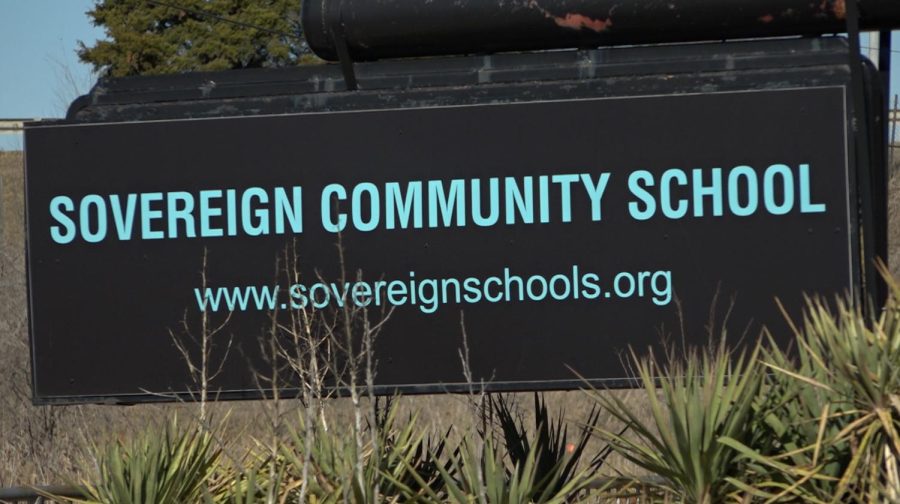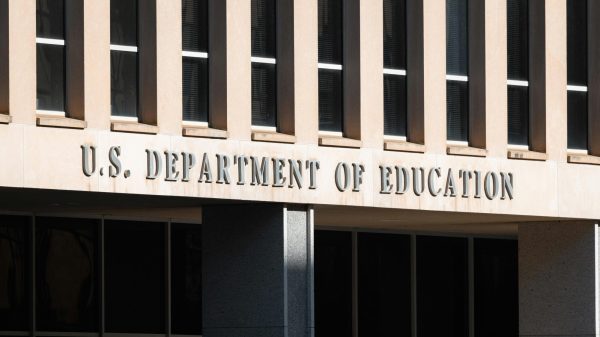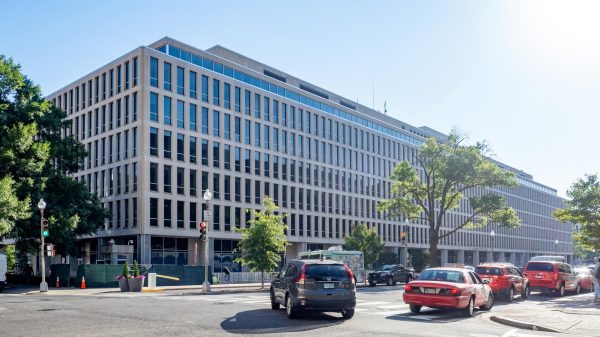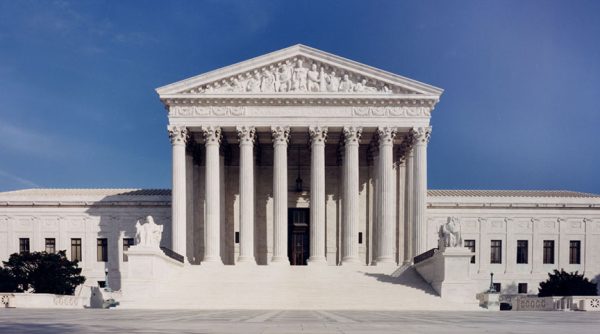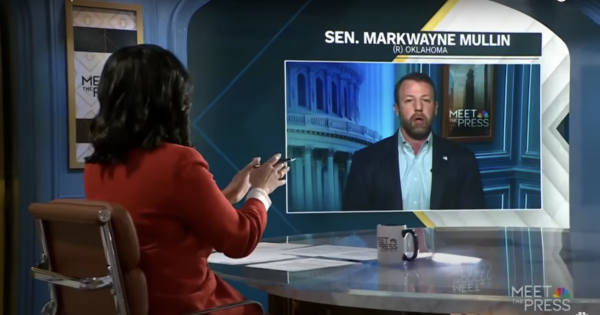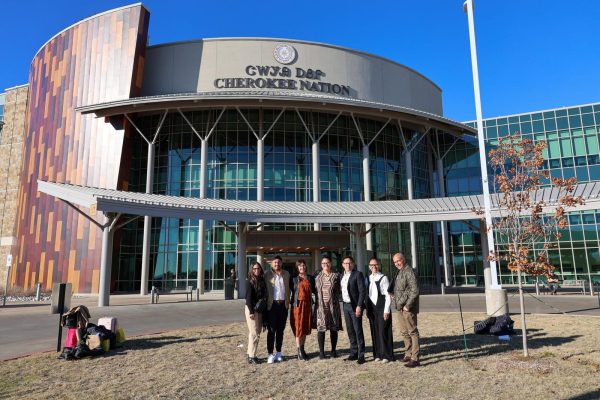Indigenous charter school seeking answers to state termination notice
Sovereign Community School is looking to supporters in hopes of keeping the school doors open. The Oklahoma State Board of Education voted Jan. 26 to end its agreement to be Sovereign’s charter sponsor. (Dacoda McDowell-Wahpekeche/Gaylord News)
Sovereign Community School is looking for ways to continue teaching Native American youth after being notified their funding could end in June.
Members of the State Board of Education voted Jan. 26 to issue a notice of termination, which could close the school if a new sponsor is not found.
Kendra Wilson-Clements, Sovereign’s board president, said she was in shock for hours after the board made its decision and experienced emotions such as anger, disappointment and sadness.
“It incited uncertainty and ‘what are we going to do next?” Wilson-Clements said. “As indigenous people, we know what to do without knowing what to do. We are not going to close. We are not going to not have school.”
But the board’s action also opened a new door for the Oklahoma City charter school, which opened in August of 2019 at 12600 N. Kelley Ave. Wilson-Clements said she and Alison Black, the head of school, got to work contacting supporters.
“Let’s start looking at our options, working our networks,” Wilson-Clements said. “Alison and I literally sitting in the car just moments after having received that news, started planning immediately what was going to be next for us.”
The Oklahoma State Department of Education, which is Sovereign’s current sponsor, says charter school sponsors can include a local school district or an institution in the State System of Higher Education.
A federally-recognized Indian tribe can sponsor a charter school if it is for the purpose of Native language immersion instruction and is located within a former reservation or in treaty area boundaries.
Black agrees that finding a new charter sponsor is one way to continue the school’s mission of engaging its youth with rigorous, culturally relevant curriculum.
“It was difficult, but at the same time it was relieving,” Black said of the state board’s vote. “I say that because now we’re on to our next chapter with the school. I get to be with my students more instead of preparing these endless reports and endless checklists.”
A community meeting planned for Thursday to discuss the state board decision and answer questions from parents was postponed Tuesday due to the weather. A new date has not been set for the session, but school leaders said they’re aiming for next week.
Black said putting together the Dec. 15 presentation to the State Board of Education was not easy, and the outcome of the January meeting was heartbreaking.
“We haven’t shared this part, but throughout the process, myself and the administration here and the school board have not been treated well,” Black said.
“It was difficult, but at the same time it was relieving,” Black said. “I say that because now we’re on to our next chapter with the school. I get to be with my students more instead of preparing these endless reports and endless checklists.”
The state board did not respond to a request for comment regarding Black’s assessment of the process.
Black and Wilson-Clements sent a letter to members of the Sovereign community explaining what happened at the state board meeting.
They said they are trying to find a way to make it work because of the students, who range in age from 5th to 12th grade.
Sharisa Hines, a sophmore, said she doesn’t want the school to close and hopes to see some progress made, because the campus is a home away from home.
“I feel like I’m going to school with my whole family and I feel comfortable,” Hines said. “I don’t feel like my voice is heard as much at any of the other schools that I’ve gone to because most of the schools do not represent all of us. They only represent what they want to.”
Wilson-Clements said she is proud of her students because times like these are tough, but they’ve done well in training them to be leaders – which she said is what they need. She went around on Jan. 27 talking to the students and asking them to help.
“We need you to exercise wise leadership more now than ever,” she told the students. “If you hear these things out in the streets or here in school amongst your friends, or whatever, we need you to step up as a leader and stop that stuff.”
Although Sovereign’s leadership was in shock, the state board of education has been talking about the school’s problems for a while.
A letter from Bryan Cleveland, general counsel for the state superintendent’s office, discusses findings ranging from positives to negatives.
Cleveland’s letter lists potential improvements, such as Black’s organization methods in comparison to others in the position before her. It also says Sovereign has received a donation of $150,000 and is trying to transition to more in-person and fewer online classes.
But while Sovereign had reported having near-perfect attendance, the letter stated that during the State Board’s visit on Jan. 23, only 69% of the 109 students enrolled were in attendance.
Cleveland’s report indicates the board lacks confidence in Sovereign to record important financial and attendance information, because the school does not have an on-site employee to manage finance and purchasing procedures.
Organizers said the school’s focus is on using Native American culture and indigenous teachings to create a more welcoming space for Native youth, who represent more than 25 tribes.
In the letter to parents, school leaders said they hope to have a plan by March 1 on how the school will continue operating.
Gaylord News is a reporting project of the University of Oklahoma Gaylord College of Journalism and Mass Communication. For more stories from Gaylord News go to GaylordNews.net.

